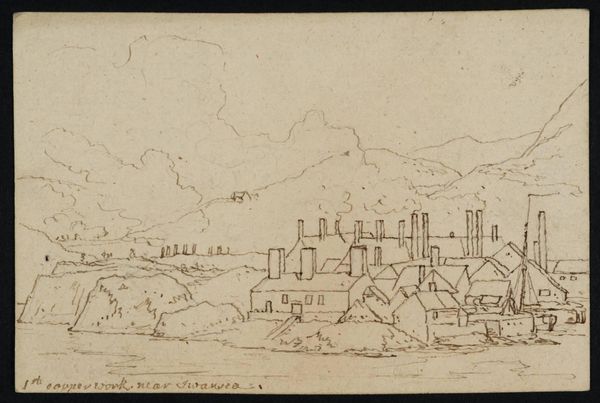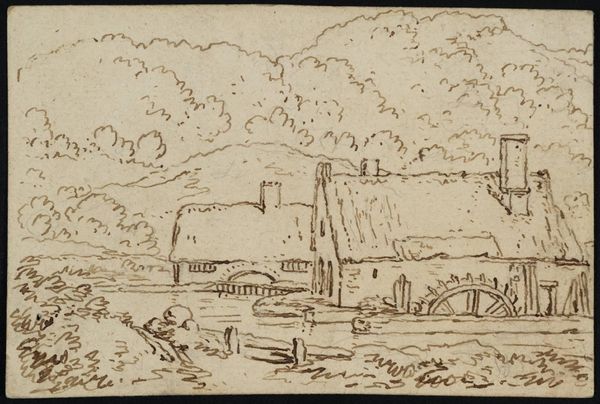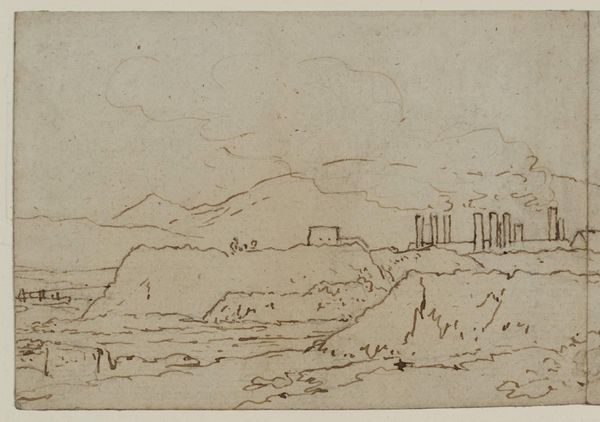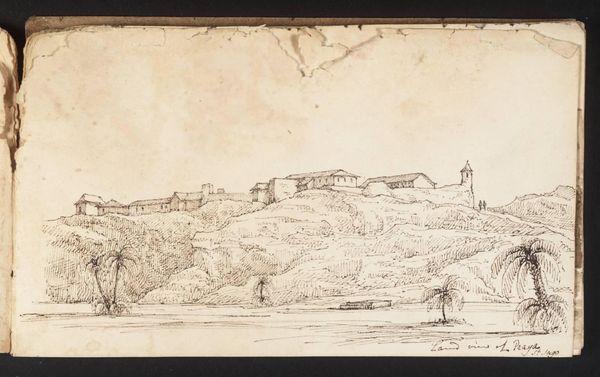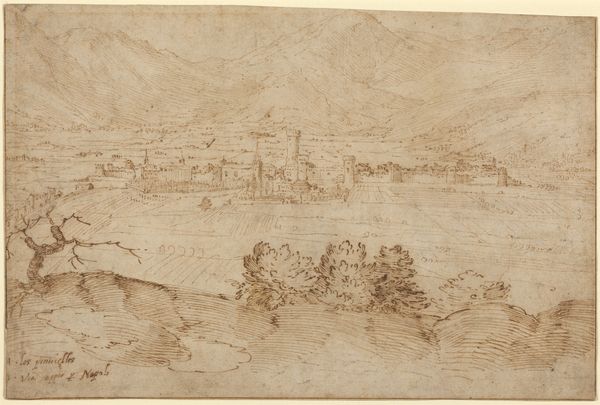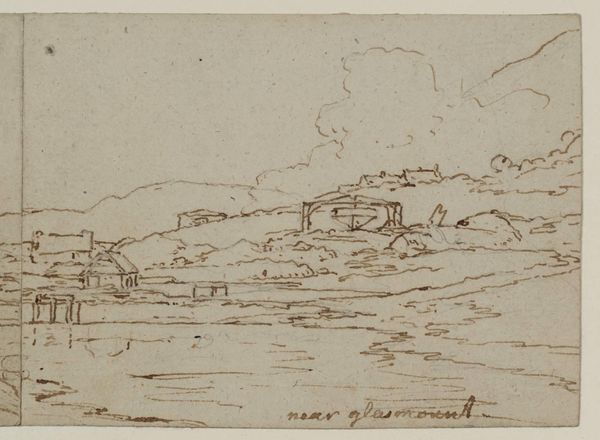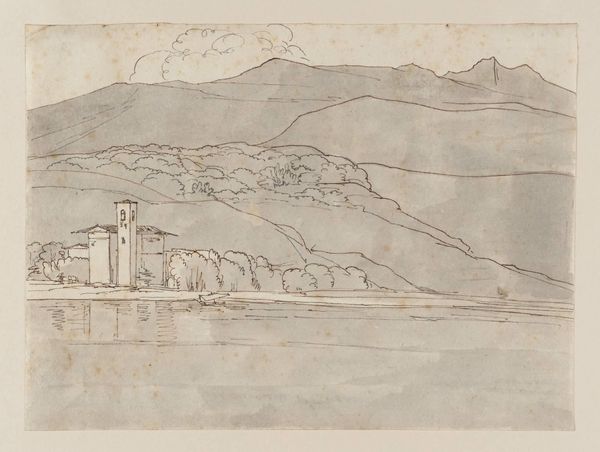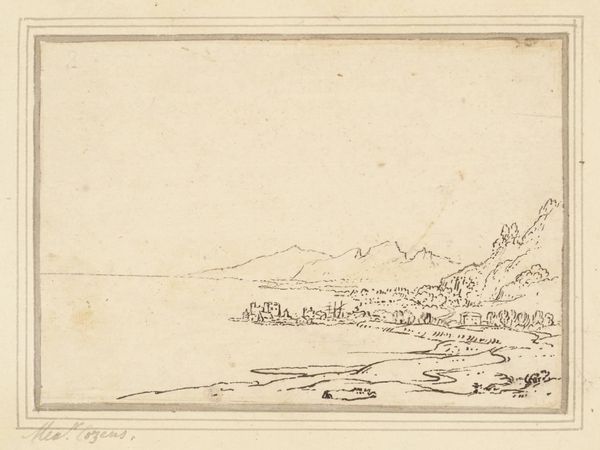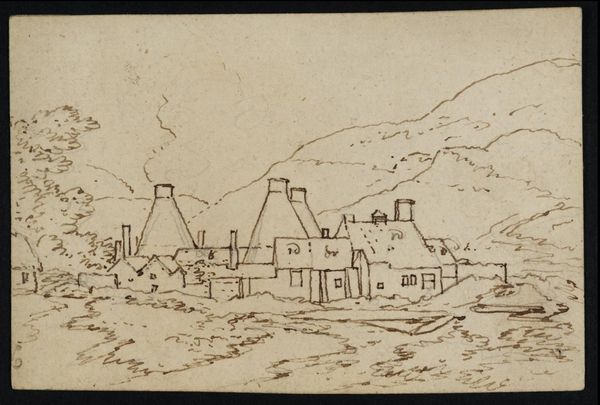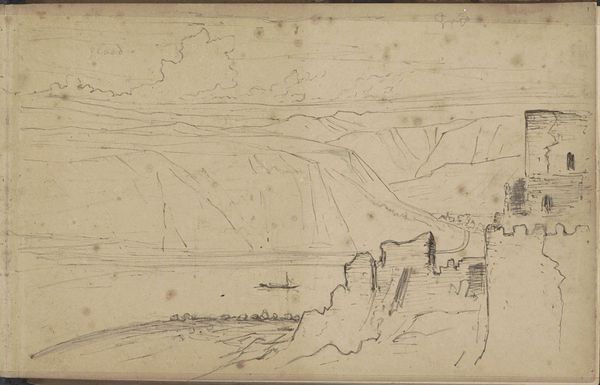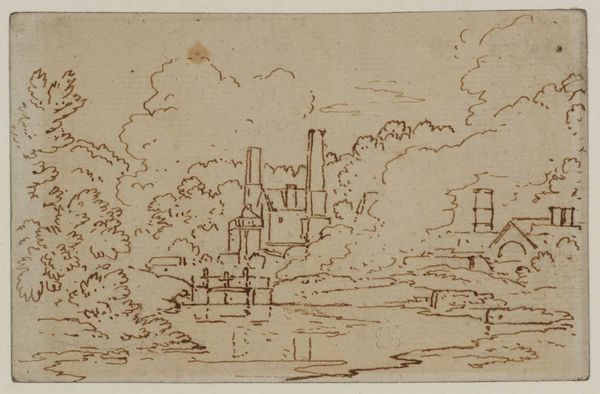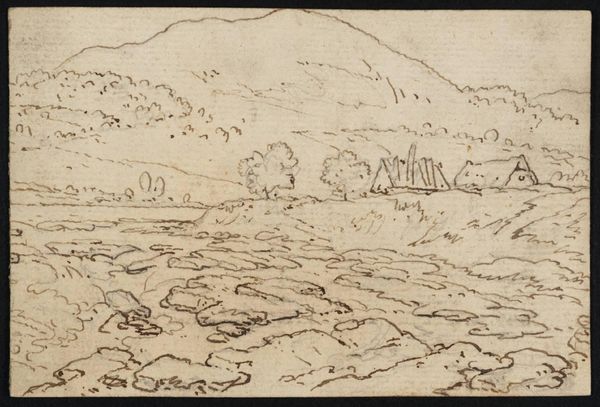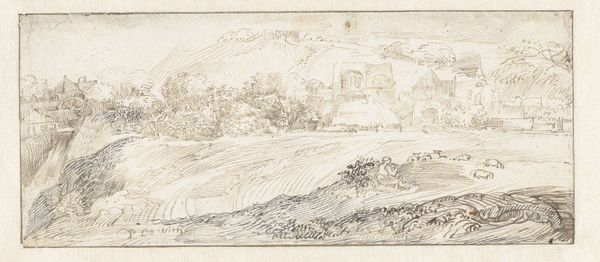
A Large Copper-Smelting Works at Swansea (Perhaps the Copper Works at Landore on the River Tawe, North of Swansea) c. 1786 - 1800
0:00
0:00
Dimensions: support: 80 x 120 mm
Copyright: CC-BY-NC-ND 4.0 DEED, Photo: Tate
Editor: This is Philip James De Loutherbourg’s "A Large Copper-Smelting Works at Swansea," a small ink drawing. I am struck by how industrialization seems to melt into the landscape itself, almost like a natural phenomenon. What do you make of this depiction? Curator: It's interesting to consider how De Loutherbourg frames industrialization, isn't it? The image becomes a document reflecting the changing social and environmental landscape. How did industrial growth influence artistic perspectives on nature and progress at the time? Editor: That makes me wonder if he's trying to comment on the relationship between industry and the environment. Was this image intended as a celebration of progress, or perhaps a critique of its consequences? Curator: Precisely. The visual language of industrial imagery often served to legitimize certain economic activities and power structures. The copper works, belching smoke, are monumentalized. The question is, for whose benefit? Editor: I see. So, beyond just a picture, this drawing is part of a larger conversation about power, progress, and who gets to define them. Thank you! Curator: Indeed. By analyzing art through a historical lens, we can unpack these complex relationships.
